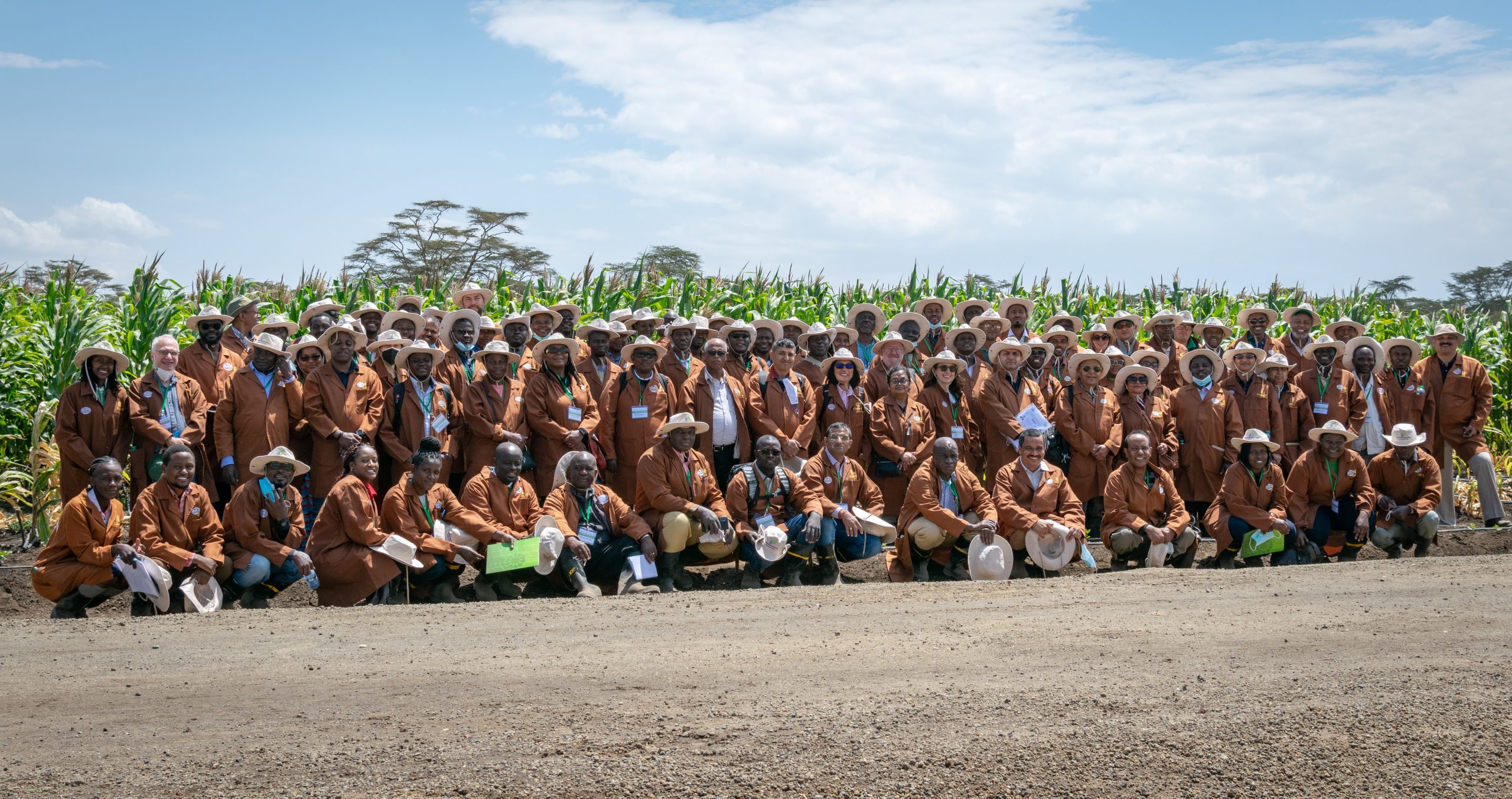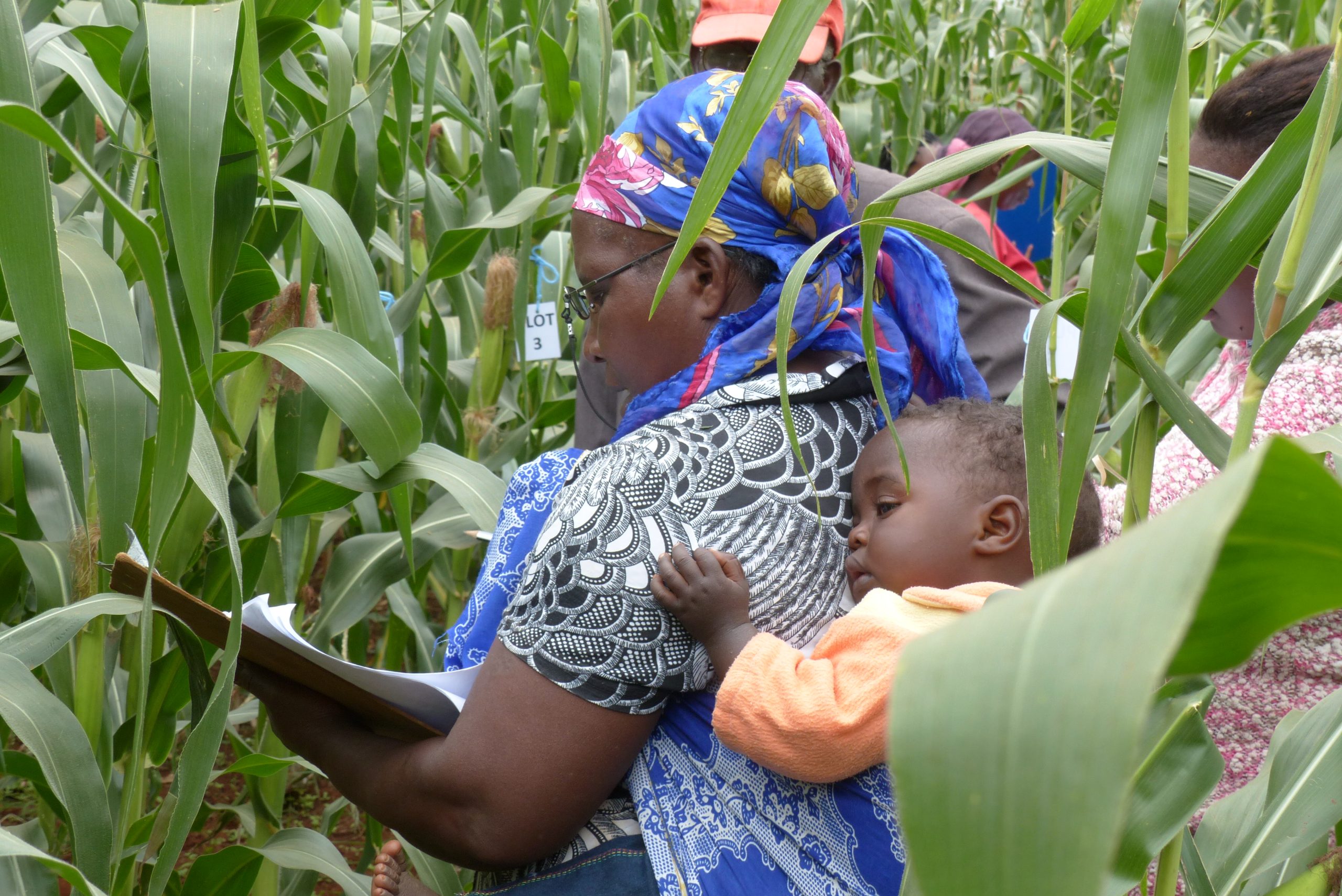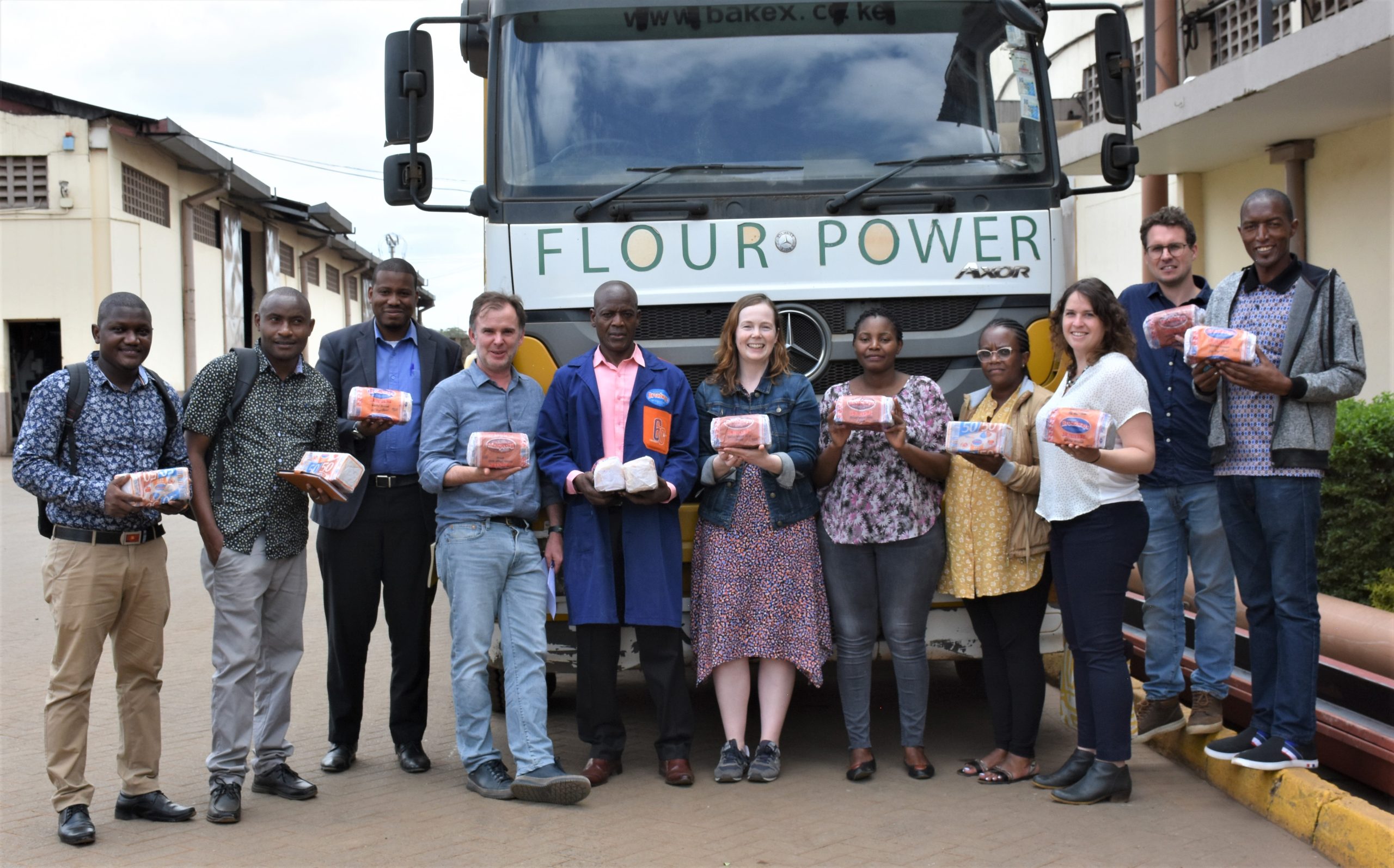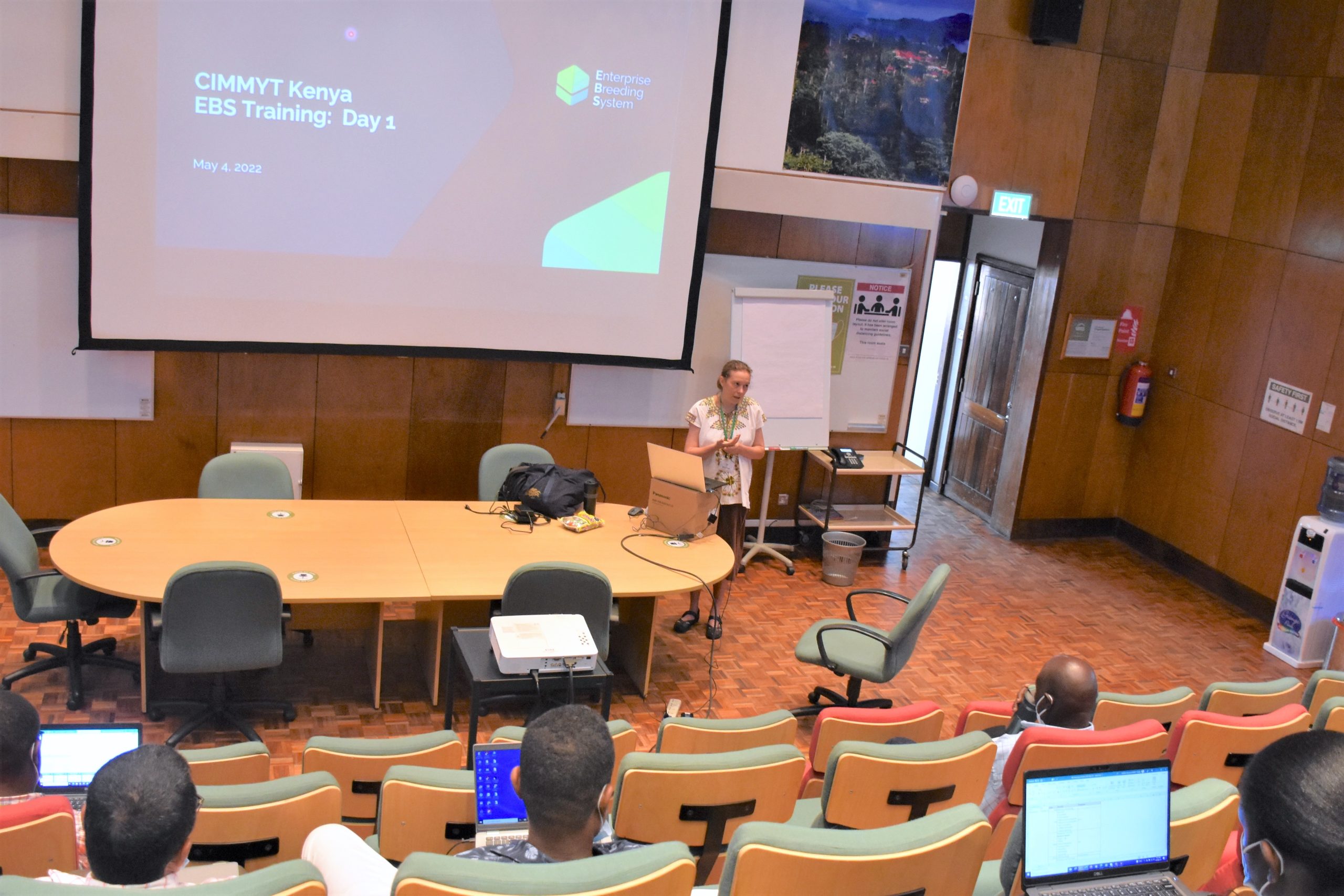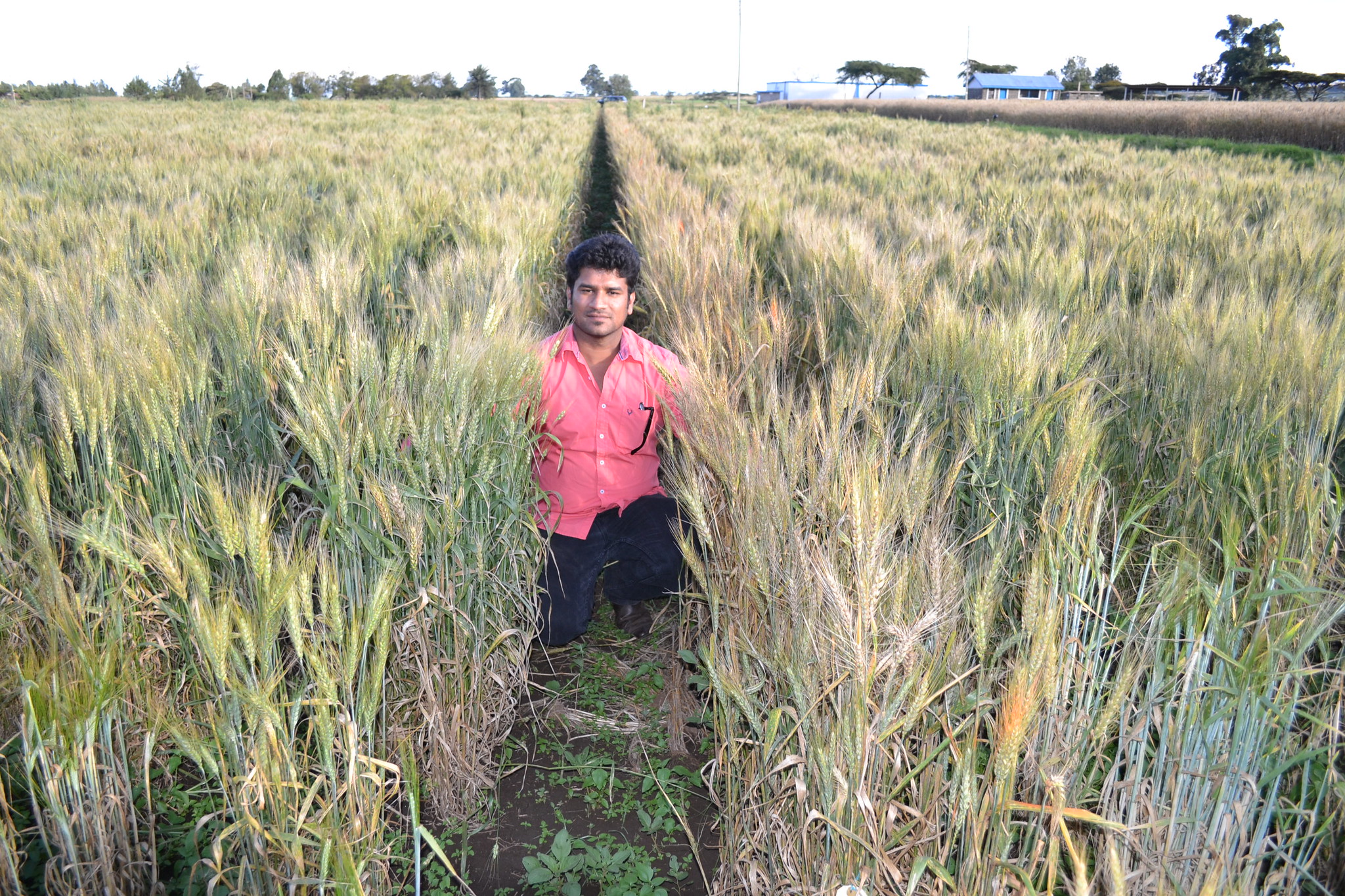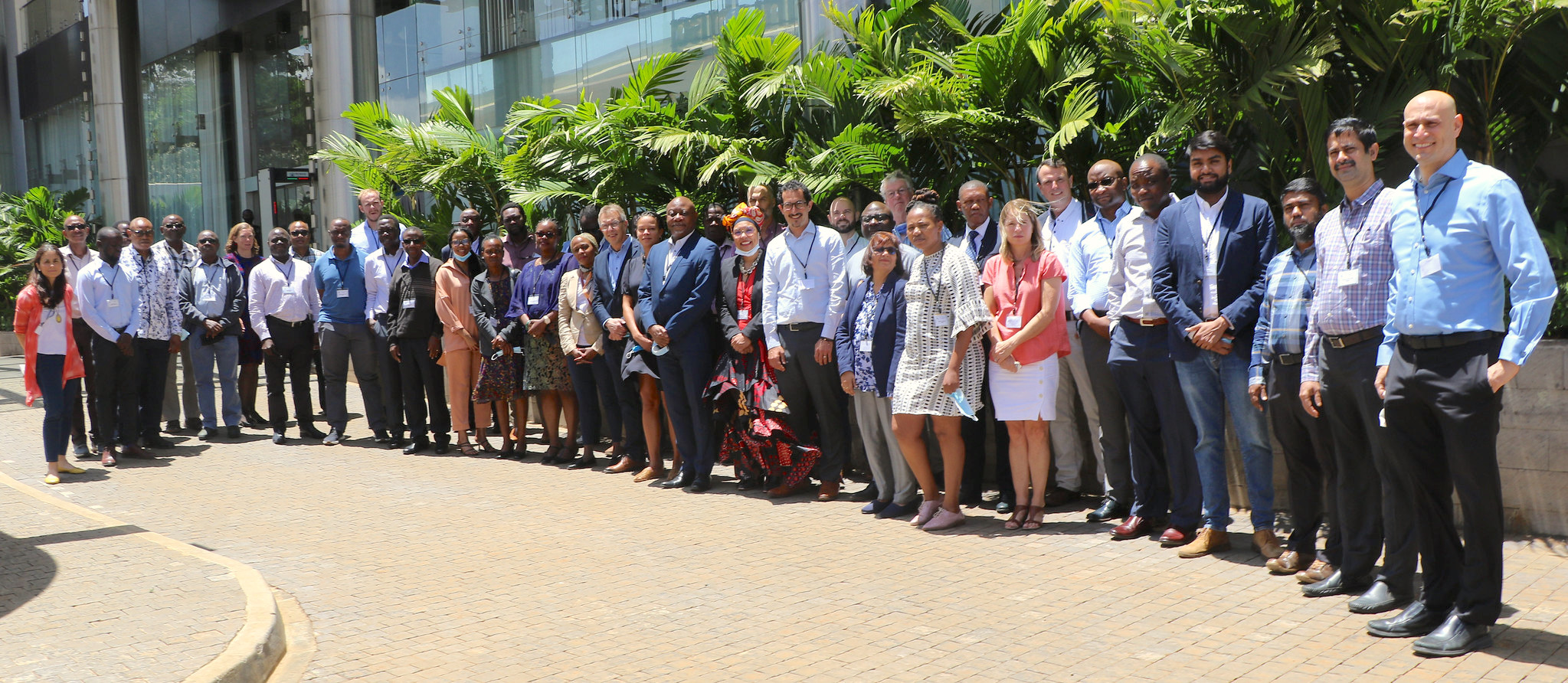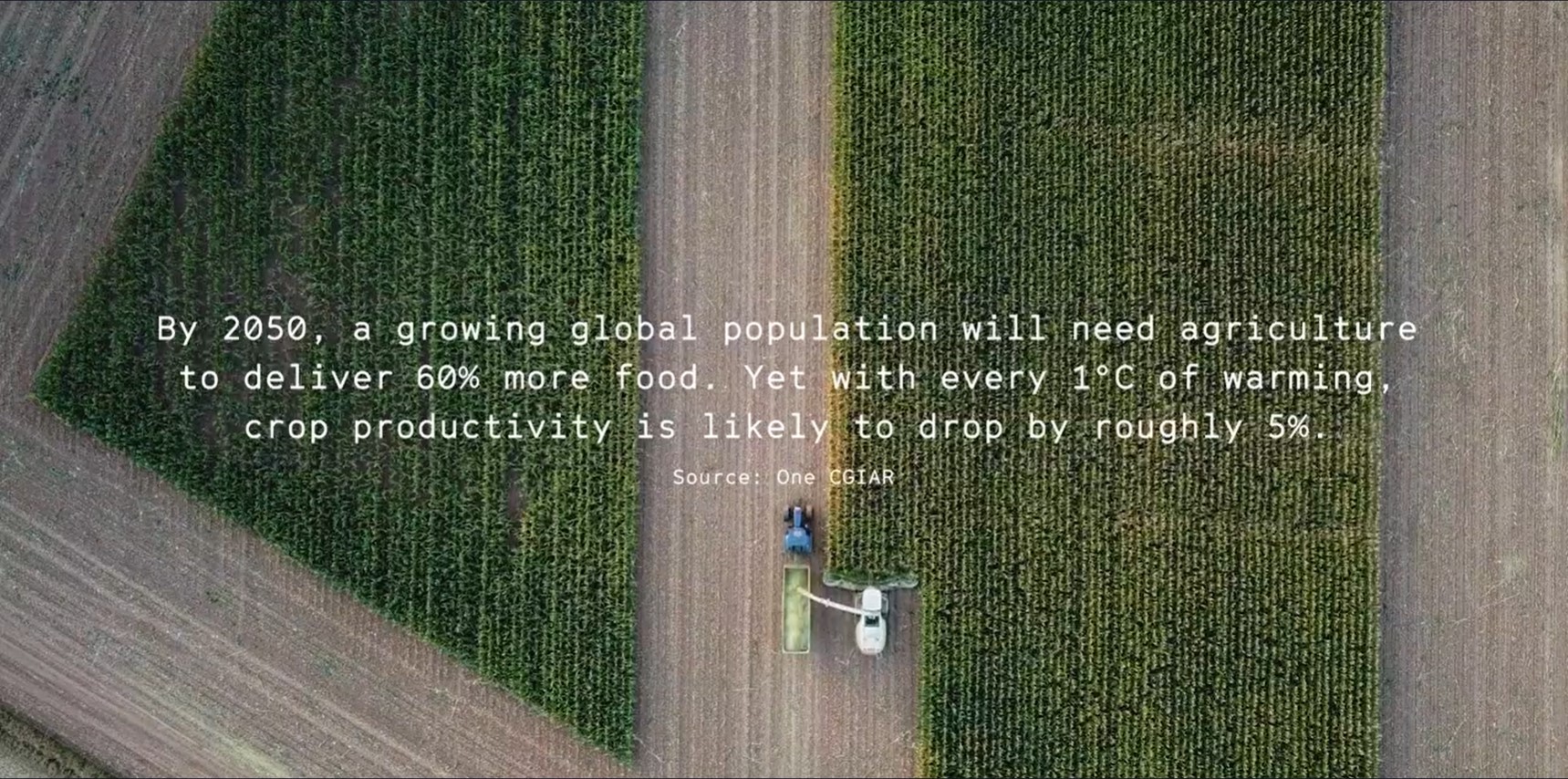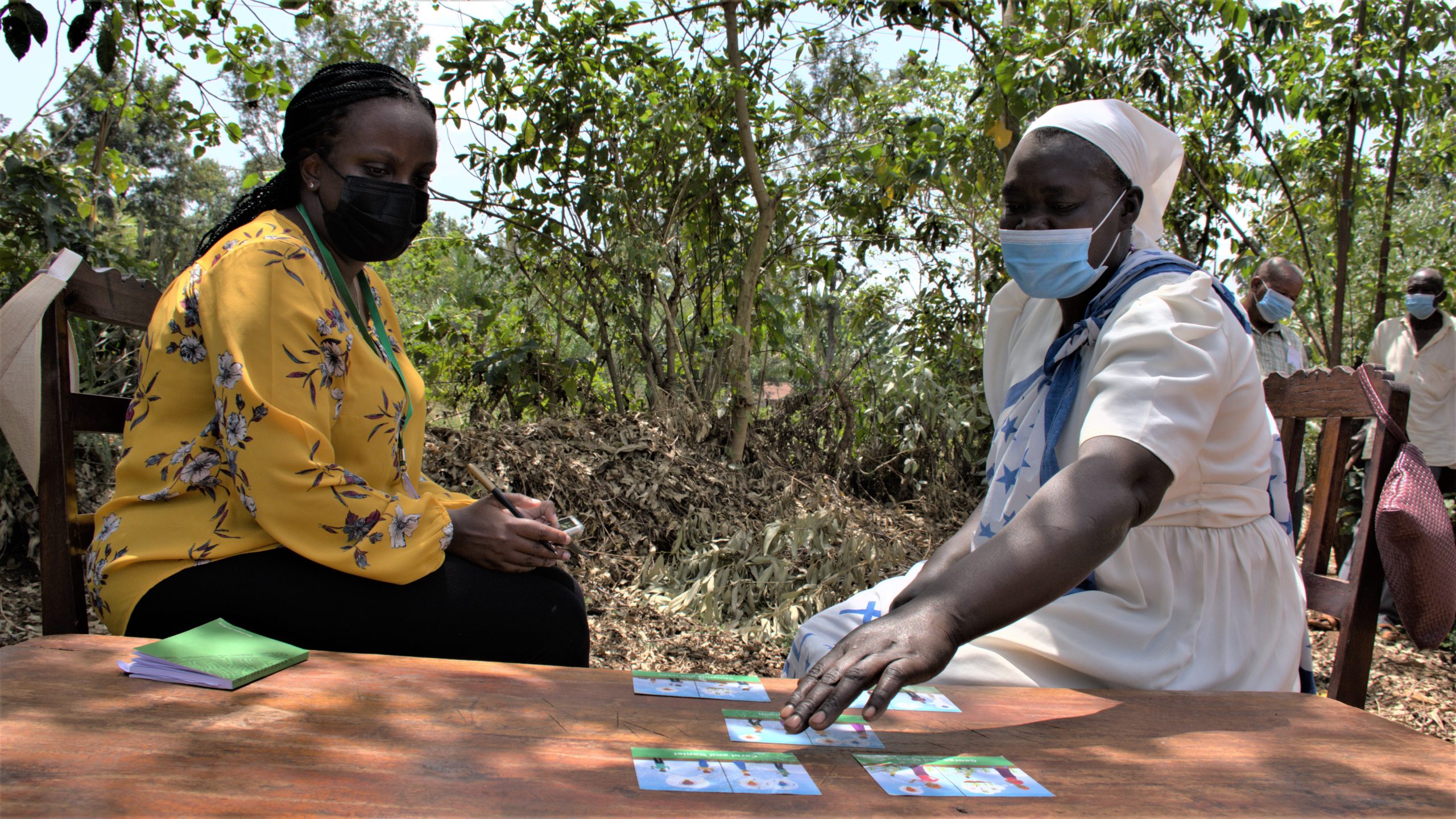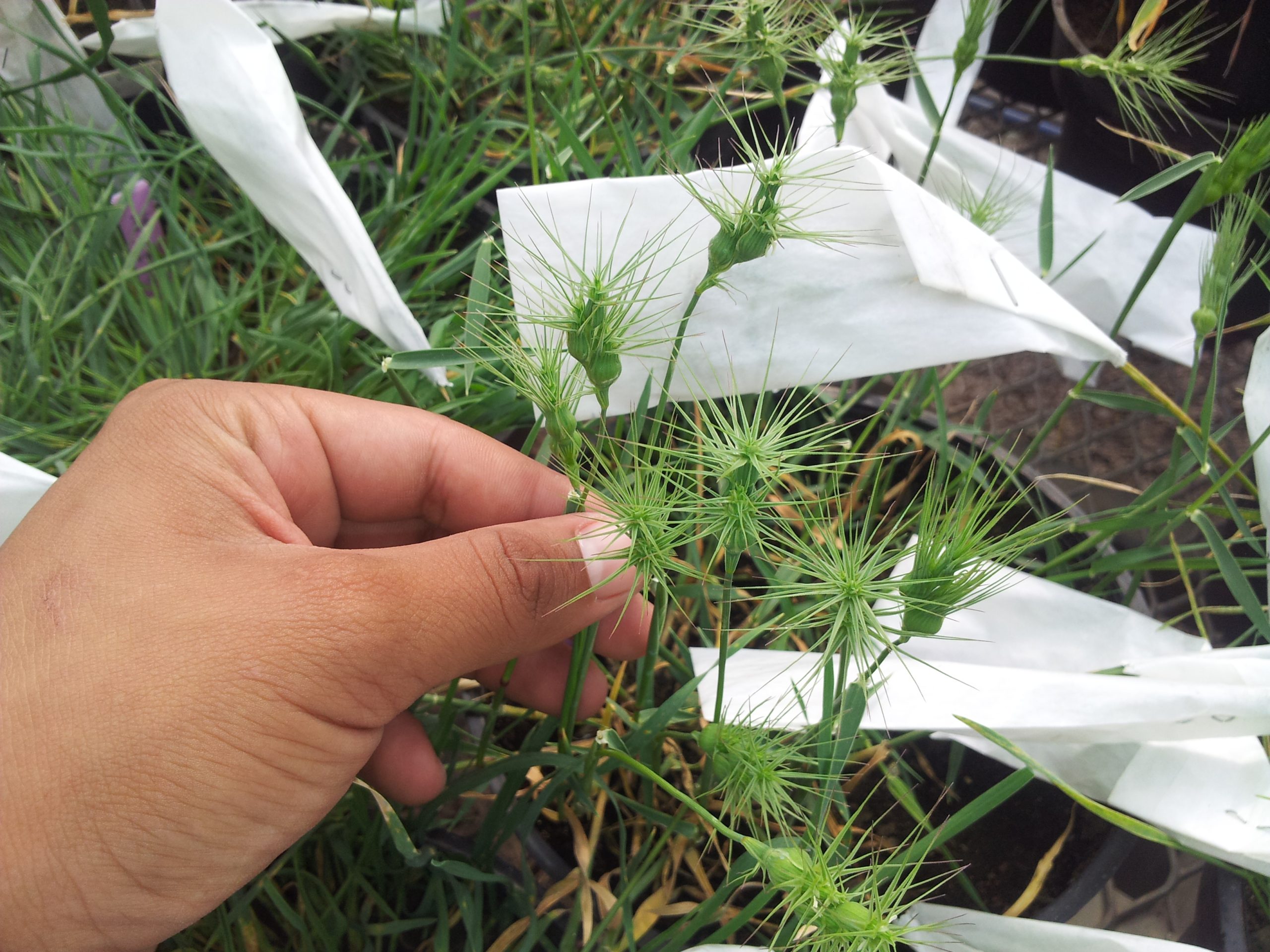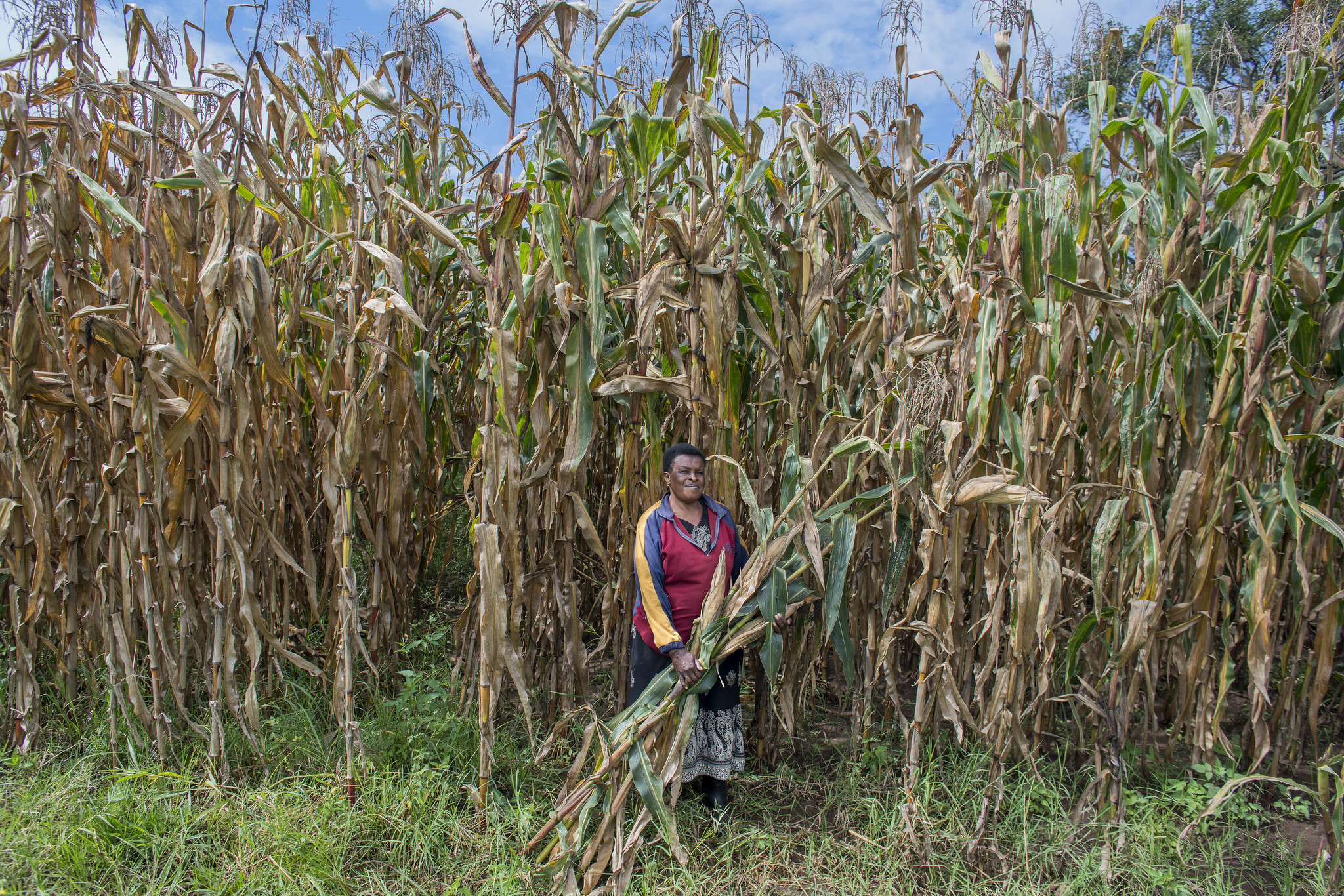Kenya
For more information, contact CIMMYT’s Kenya office.
AGG-Maize project registers impressive progress
 Nutrition, health and food security
Nutrition, health and food security
Achievements and next steps discussed at the review meeting in Nairobi, Kenya.
Novel technology to reduce the complexity of maize seed production and increase maize hybrid yields in farmer’s fields
 Capacity development
Capacity development
Collaborative field evaluations reveal promising results for sub-Saharan Africa’s low input maize farming systems and commercial seed production.
Exploring the potential for blended wheat flours in Kenya
 Climate adaptation and mitigation
Climate adaptation and mitigation
CIMMYT supports practical solutions to the ongoing global wheat crisis by understanding consumer acceptance of foods baked from blended wheat flour.
Soil scientists and stakeholders reflect on progress and impacts of CIMMYT-Rwanda partnership for soil health
 Environmental health and biodiversity
Environmental health and biodiversity
“Strong partnership” highlighted as CIMMYT and the Rwanda Agriculture and Animal Resources Development Board review progress in managing acid soil.
2022 Excellence in International Service Award
 Environmental health and biodiversity
Environmental health and biodiversity
This award recognizes outstanding contributions to plant pathology by APS members for countries other than their own. Contributions may have been made through collaborative projects, sabbaticals, short- and long-term assignments with educational or governmental agencies, including, but not limited to, international centers and research institutes.
Researchers in East Africa add the Enterprise Breeding System to their work tools
 Capacity development
Capacity development
Scientists, research technicians and data managers learn functionalities and applications of EBS during in-person training in Nairobi.
New CGIAR Initiative to catalyze resilient agrifood systems in eastern and southern Africa
 Climate adaptation and mitigation
Climate adaptation and mitigation
The Ukama Ustawi Initiative will help millions of vulnerable smallholders in 12 countries transition from maize-mixed systems to sustainably intensified, diversified, and de-risked agrifood systems.
CGIAR research highlighted among climate innovations to meet net zero emissions
 Climate adaptation and mitigation
Climate adaptation and mitigation
Documentary features CIMMYT and Alliance scientists contributing to reduce greenhouse gas emissions from agriculture.
Who does what in maize farming in Kenya?
 Gender equality, youth and social inclusion
Gender equality, youth and social inclusion
Study deepens the understanding of women’s and men’s roles in maize plot management to guide gender-responsive maize breeding and seed system interventions.
Bringing wild wheat’s untapped diversity into elite lines
 Environmental health and biodiversity
Environmental health and biodiversity
Researchers hypothesized that many wild wheat accessions in genebanks feature useful traits that can help diversify breeding programs.
When it comes to maize variety choices, can farmers have it all?
Varietal trait prioritization is important for balancing commercial realities and farmers’ diverse interests.
